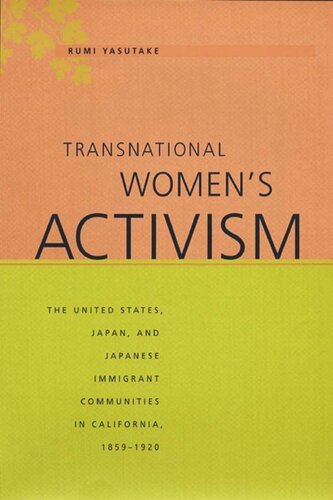

Most ebook files are in PDF format, so you can easily read them using various software such as Foxit Reader or directly on the Google Chrome browser.
Some ebook files are released by publishers in other formats such as .awz, .mobi, .epub, .fb2, etc. You may need to install specific software to read these formats on mobile/PC, such as Calibre.
Please read the tutorial at this link: https://ebookbell.com/faq
We offer FREE conversion to the popular formats you request; however, this may take some time. Therefore, right after payment, please email us, and we will try to provide the service as quickly as possible.
For some exceptional file formats or broken links (if any), please refrain from opening any disputes. Instead, email us first, and we will try to assist within a maximum of 6 hours.
EbookBell Team

4.4
42 reviewsFollowing landmark trade agreements between Japan and the United States in the 1850s, Tokyo began importing a unique American commodity: Western social activism. As Japan sought to secure its future as a commercial power and American women pursued avenues of political expression, Protestant church-women and, later, members of the Women's Christian Temperance Union (WCTU) traveled to the Asian coast to promote Christian teachings and women's social activism.
Rumi Yasutake reveals in Transnational Women's Activism that the resulting American, Japanese, and first generation Japanese-American women's movements came to affect more than alcohol or even religion. While the WCTU employed the language of evangelism and Victorian family values, its members were tactfully expedient in accommodating their traditional causes to suffrage and other feminist goals, in addition to the various political currents flowing through Japan and the United States at the turn of the nineteenth century.
Exploring such issues as gender struggles in the American Protestant church and bourgeois Japanese women's attitudes towards the "pleasure class" of geishas and prostitutes, Yasutake illuminates the motivations and experiences of American missionaries, U.S. WCTU workers, and their Japanese protégés. The diverse machinations of WCTU activism offer a compelling lesson in the complexities of cultural imperialism.